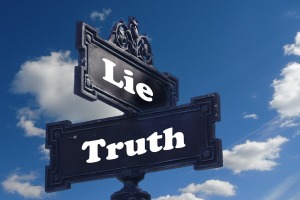Gay vs. queer

In a recent New York Times opinion column, Pamela Paul makes an impassioned argument for why we should continue to use the word “gay” rather than “queer.” Not all gay people identify as queer, she correctly claims, and the Q-word's rise to dominance thereby risks downgrading or eliminating them. Paul is not the first to notice this issue as affecting gay individuals. And her point is similar to that made by gender-critical feminists such as Germaine Greer and J. K. Rowling, who see trans ideology as destroying female identity, and therefore as inflicting harm upon women.
Who could have seen any of this coming? The answer, of course, is anybody who was actually paying attention. The theoretical foundations of the sexual revolution always and unabashedly aimed at dismantling traditional sexual codes and identities. And there is a fundamental incoherence in an alliance that requires affirmation of the gender binary in the L, the G, and the B whilst emphatically denying it in the T and Q.
The problem is, of course, that despite the rhetoric of inclusion with which queer theory cloaks itself, queerness is not very inclusive. It is not the category that includes all other categories. Quite the contrary. It is the category that destabilizes, subverts, and thereby ultimately excludes all other categories. A more imperious, imperialist, and all-corrosive concept is actually difficult to imagine. Indeed, it is hard to put the issue more pointedly than Paul does herself:
"Queer theory is about deliberately breaking down normative categories around gender and sex, particularly binary ones like men and women, straight and gay. Saying you’re queer could mean you’re gay; it could mean you’re straight; it could mean you’re undecided about your gender or that you prefer not to say. Saying you’re queer could mean as little as having kissed another girl your sophomore year at college. It could mean you valiantly plowed through the prose of Judith Butler in a course on queerness in the Elizabethan theater."
In short, queer theory means that you could be saying anything you want about yourself and are therefore communicating nothing stable or meaningful at all.
Now, some of us have been pointing out for years that this is a basic problem with critical theories that assume social construction and discourses of power as the basic elements of transformative cultural analysis. Our reward has been to be decried as simply not understanding what is really going on and as lacking the intellectual smarts to comprehend the allegedly sophisticated arguments of the critical theorists. But that is to mistake rebarbative and opaque jargon for sophistication and truth. The truly profound have little reason to bury their thoughts in semantic smog. That is rather the typical mask of those with a vested interest in hiding something — whether it be their intellectual superficiality or their political radicalism. If I might momentarily play the critical theory card myself, intentional obscurity is itself a discourse of power.
Pamela Paul asks in exasperation, “Confused? You should be!” Yet as she immediately acknowledges, the whole purpose of the words that populate critical theoretical discourse, such as “queer,” is to confuse — something abundantly clear to anyone not mesmerized by the jargon that is itself part of the polemical project. It should be obvious, for example, that Judith Butler’s obscure prose style is deeply connected to her philosophical and political purpose: the destabilizing of the reader’s categories as part of the destabilization of all categories.
As intersectionality and the emerging convergence between theories of race, sexuality, gender, and queerness really make clear, critical theory is a runaway train. One cannot simply ride it only so far as it suits one’s own discourse of power, whether of race, sexuality, or gender. And that’s the problem with Paul’s position: She fails to see her own complicity in this game. One can valorize the gay movement and its categories but only on the basis of destabilizing those of the old regime — those heterosexual norms of behavior and identity against which the gay movement defined itself. The gay movement destabilized the norms that suited its own purposes, but now Paul wants the process to stop. Yet critical theories do not operate like that. Whatever the categories of the day are — male, female, straight, gay, bi, cis, white, black — if they are or become remotely stable then they too are ultimately part of a discourse of power that includes some and marginalizes others. And that means that they too are liable to be overthrown as new marginal communities emerge, demanding recognition and using critical theoretical weapons to speak truth to power, as the cliché goes.
The winners and losers may change, but the game is always the same: to dethrone whatever today’s dominant categories might be, whether of heterosexuality, whiteness, or the gender binary. It is categorical stability, not the categories themselves, that is the real enemy. If C. S. Lewis warned 80 years ago of the abolition of man, we today are witnessing the abolition not just of “man” but of meaning as a whole.
Originally published at First Things.
Carl R. Trueman is a professor of biblical and religious studies at Grove City College. He is an esteemed church historian and previously served as the William E. Simon Fellow in Religion and Public Life at Princeton University. Trueman has authored or edited more than a dozen books, including The Rise and Triumpth of the Modern Self, The Creedal Imperative, Luther on the Christian Life, and Histories and Fallacies.




























